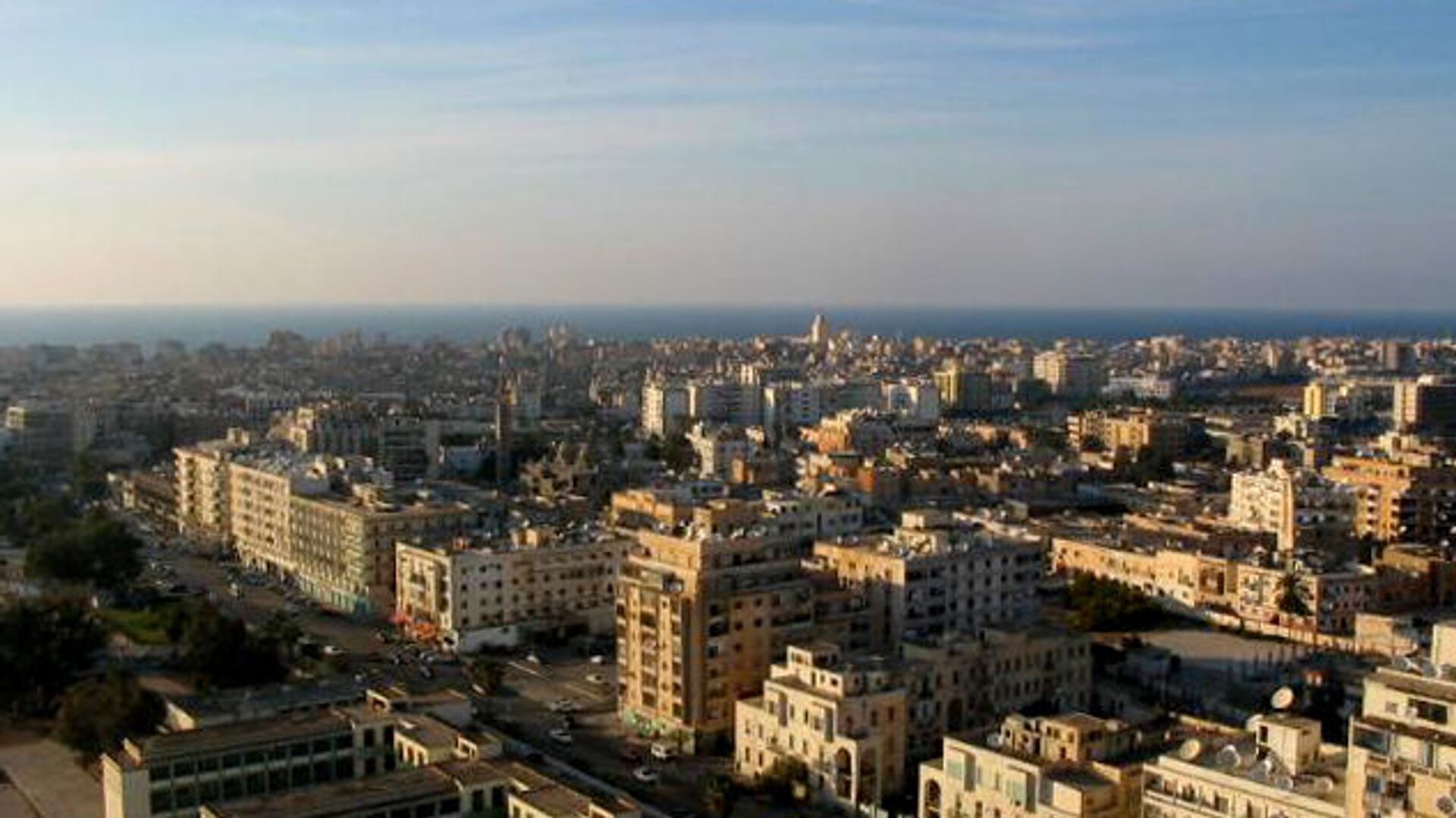https://sputnikglobe.com/20211122/libya-not-ready-to-normalise-ties-with-israel-as-other-acute-issues-take-the-lead-says-journalist-1090918307.html
Libya Not Ready to Normalise Ties With Israel, as Other Acute Issues Take The Lead, Says Journalist
Libya Not Ready to Normalise Ties With Israel, as Other Acute Issues Take The Lead, Says Journalist
Sputnik International
The country's economy and security have been in tatters since 2011, with the eruption of the Arab Spring which led to the demise of Muammar Al Gaddafi and... 22.11.2021, Sputnik International
2021-11-22T08:43+0000
2021-11-22T08:43+0000
2022-11-24T11:04+0000
middle east
israel
libya
https://cdn1.img.sputnikglobe.com/img/07e4/0c/10/1081481302_0:55:633:411_1920x0_80_0_0_0efab5169e5c93dbb43edf35e8903c05.jpg
With the Libyan presidential race only a month away, contenders keep registering their names in the bid for the top position.Among the recent additions to that list is the son of the slain Libyan leader Muammar Al Gaddafi, Seif Al Islam, and General Khalifa Haftar, the head of the Libyan National Army, which lacks the recognition of the international community.No ChanceBut Khaoula Bin Khias, a Tunisian journalist who specialises in Libya and the region, says neither Gaddafi, nor General Haftar "have a chance to win the presidential race".The United States has already announced that the son of the former Libyan leader will be subject to American and international sanctions for his alleged involvement in carrying out crimes against humanity during the Libyan revolution of 2011.Haftar, on the other hand, seems to be losing the support of Egypt, which over the years has been one of the General's staunch allies. And he has also failed to garnish the backing of his own people following his defeat in the 2020 battle over Tripoli.Improbable TiesHowever, Haftar's chances to climb in the polls have been tarnished by yet another reason -- his son Saddam's visit to Israel.In November, Saddam, who is reportedly eyeing a presidential bid himself, touched down in Tel Aviv, where he allegedly met with a number of Israeli officials, vowing to normalise relations with the Jewish state in exchange for military support.Bin Khias says that that move was not taken lightly by the Libyans, who viewed it as a "stupid and immature step".Although Libya is ranked 9th in the world in oil production, an industry that brings the country billions of dollars annually, the nation's economy has been in tatters since 2011, with the eruption of the Arab Spring that ousted then-leader Muammar Al Gaddafi and pushed the country into a civil war.
israel
libya
Sputnik International
feedback@sputniknews.com
+74956456601
MIA „Rosiya Segodnya“
2021
News
en_EN
Sputnik International
feedback@sputniknews.com
+74956456601
MIA „Rosiya Segodnya“
Sputnik International
feedback@sputniknews.com
+74956456601
MIA „Rosiya Segodnya“
middle east, israel, libya
middle east, israel, libya
Libya Not Ready to Normalise Ties With Israel, as Other Acute Issues Take The Lead, Says Journalist
08:43 GMT 22.11.2021 (Updated: 11:04 GMT 24.11.2022) The country's economy and security have been in tatters since 2011, with the eruption of the Arab Spring which led to the demise of Muammar Al Gaddafi and pushed the nation into a civil war. The new president of Libya will have to deal with these and other pressing issues.
With the Libyan presidential race only a month away, contenders keep registering their names in the bid for the top position.
Among the recent additions to that list is the son of the slain Libyan leader Muammar Al Gaddafi, Seif Al Islam, and General Khalifa Haftar, the head of the Libyan National Army, which lacks the recognition of the international community.
But Khaoula Bin Khias, a Tunisian journalist who specialises in Libya and the region, says neither Gaddafi, nor General Haftar "have a chance to win the presidential race".
The United States has already announced that the son of the former Libyan leader will be subject to American and international sanctions for his alleged involvement in carrying out crimes against humanity during the
Libyan revolution of 2011.
Haftar, on the other hand, seems to be losing the support of Egypt, which over the years has been one of the General's staunch allies. And he has also failed to garnish the backing of his own people following his defeat in the 2020
battle over Tripoli.
"The next president of Libya should come from the heart of the country. It has to be somebody, who is connected to the Libyans and someone, who maintains good relations with the US and Russia, Turkey and Egypt and many other international players. This is why it cannot be either Seif Al Islam or Haftar."
However, Haftar's chances to climb in the polls have been tarnished by yet another reason -- his son Saddam's
visit to Israel.
In November, Saddam, who is reportedly eyeing a presidential bid himself, touched down in Tel Aviv, where he allegedly met with a number of Israeli officials, vowing to normalise relations with the Jewish state in exchange for military support.
Bin Khias says that that move was not taken lightly by the Libyans, who viewed it as a "stupid and immature step".
"First of all, he could have done it quietly without throwing it in the face of the Libyan people. And, secondly, Libyans are not ready for the normalisation with Israel yet. It is not their top priority. Their economy and security are."
Although Libya is ranked 9th in the world in oil production, an industry that brings the country billions of dollars annually, the nation's economy has been in tatters since 2011, with the eruption of the Arab Spring that ousted then-leader Muammar Al Gaddafi and pushed the country into a civil war.
"Libya is a rich country but people don't have food and electricity. Neither do they have security and they need to deal with issue such as terrorism and refugees. Can Israel help Libya in dealing with these issues. I doubt it, and this is why I don't see any prospects of normalisation yet."



